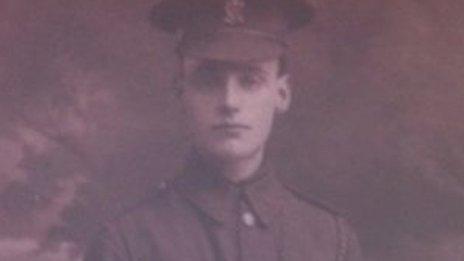WW1: MPs praise impact of centenary celebrations in NI
- Published
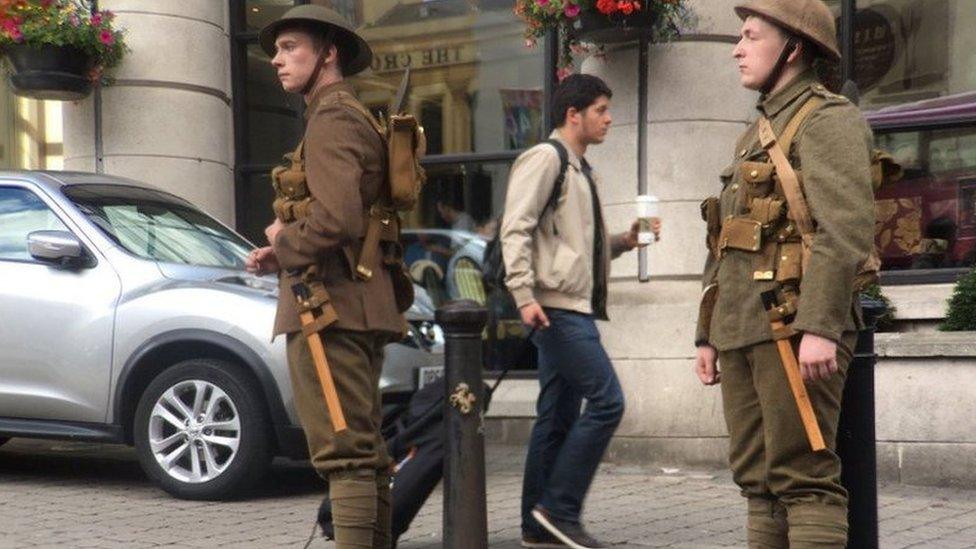
Soldiers appeared at a number of locations across Belfast including the Europa Hotel
Placing men dressed as British soldiers in Belfast to commemorate World War One carried "huge risks" that were worth taking.
That was the finding of a Westminster committee report looking into lessons from centenary events.
The memorial project called 'we're here because we're here', external was found to be ultimately "hugely successful".
The report was published by the House of Commons Digital, Culture, Media and Sport (DCMS) committee.
Members were also told that the "Irish dimension" was one of the most productive aspects of the commemorations.
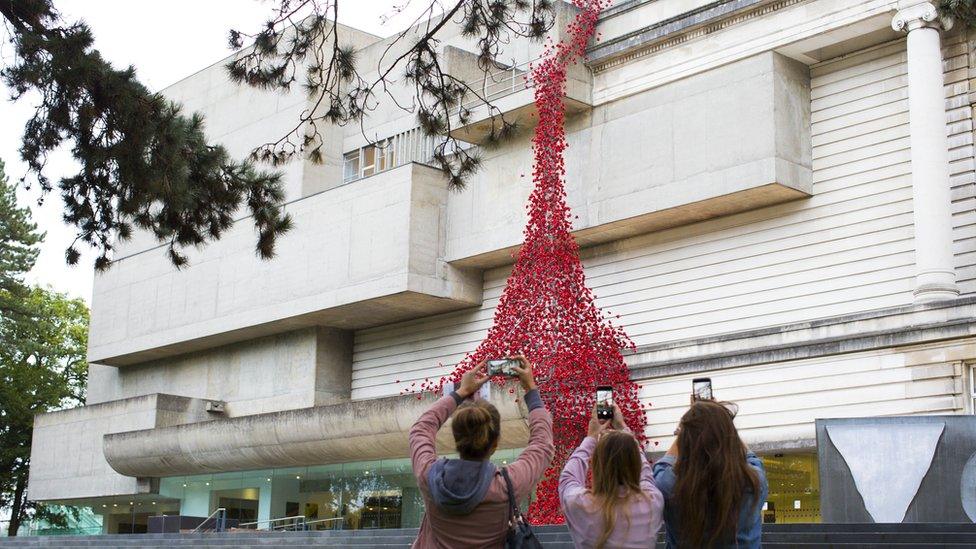
A number of events were held, such as the installation of the Weeping Window at the Ulster Museum
A series of special events and projects took place across the UK during 2014 to 2018 to commemorate the centenary of World War One.
Around £50m was made available by the UK government for events to commemorate the centenary.
A number of events took place in Northern Ireland, including the Weeping Window poppy sculpture.
Pages of the Sea was also staged at Murlough Beach, Portstewart Strand, Downhill Beach and Port Bán, in County Donegal.
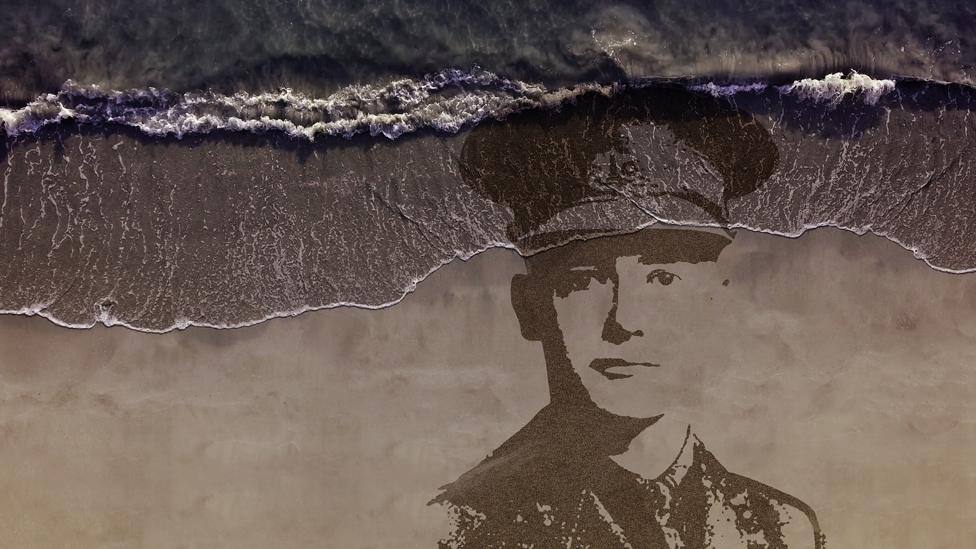
Portraits of World War One casualties were designed on numerous beaches by sand artists Sand In Your Eye
The Heritage Lottery Fund also funded a number of projects in Northern Ireland, including the multi-million pound restoration of HMS Caroline.
'We're here because we're here' involved thousands of volunteers dressed as British soldiers appearing in numerous British cities - including Belfast - on 1 July 2016.
It marked the centenary of the Battle of the Somme.
'Worth taking bold risks'
The DCMS report contained evidence from Jenny Waldman, the director of '14-18 Now' - the organisation behind the artwork.
"Putting First World War soldiers, British soldiers, onto the streets of Northern Ireland carried huge risks," she told the committee.
"But we managed those risks with the expertise of our Northern Ireland advisers, with the police service in Northern Ireland and with the brilliant theatres in Northern Ireland, who know their communities very well.
"The success of that project was evidence that the cultural community in the UK is immensely strong and the combination of contemporary arts and heritage is hugely successful, and that it is absolutely worth taking those bold risks."
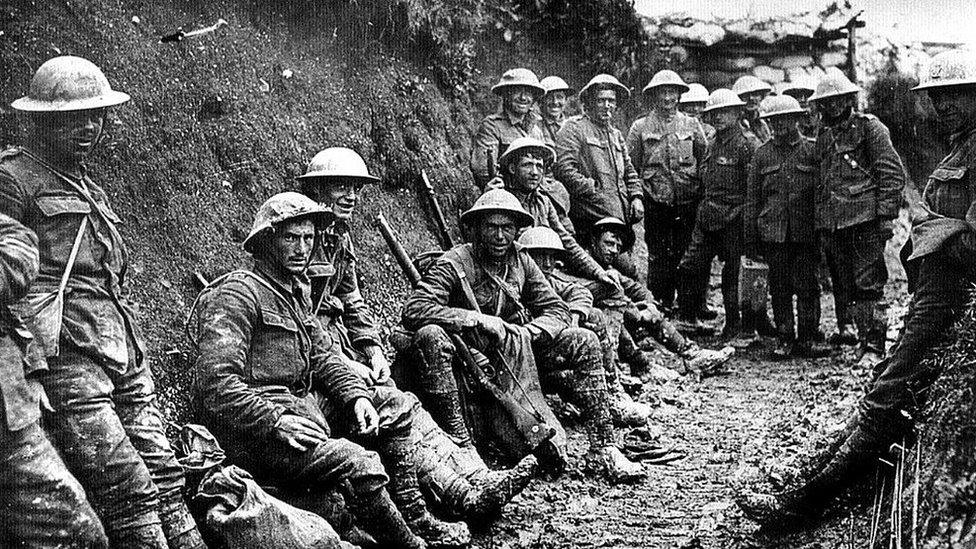
Nearly 20,000 British troops were killed on a single day at the Battle of the Somme in 1916
A number of other Northern Irish commemorative projects were also praised in the DCMS report.
A research group into the contribution of Irish nationalists in the Connaught Rangers regiment during the war overcame initial "considerable hostility" to highlight the participation of Belfast nationalists in the Army.
"Through researching factual historical accounts of the period, and recalling the human stories of those who enlisted, a clearer picture of the influences, political and social, that impacted on and motivated people of that time are recorded for future generations," their submission said.
The academic engagement centre based at Queen's University in Belfast (QUB) helped community groups tackle racist and sectarian graffiti by introducing murals based on the war.
"A series of inclusive commemorative murals formed 'The Poppy Trail' in the Donegall Road area of south Belfast to mitigate a rising problem of racist and sectarian graffiti on local walls," the DCMS report said.
'2020 Festival could be divisive'
The UK centenary commemorations ran alongside the ongoing Decade of Centenaries programme in Northern Ireland and the Republic of Ireland.
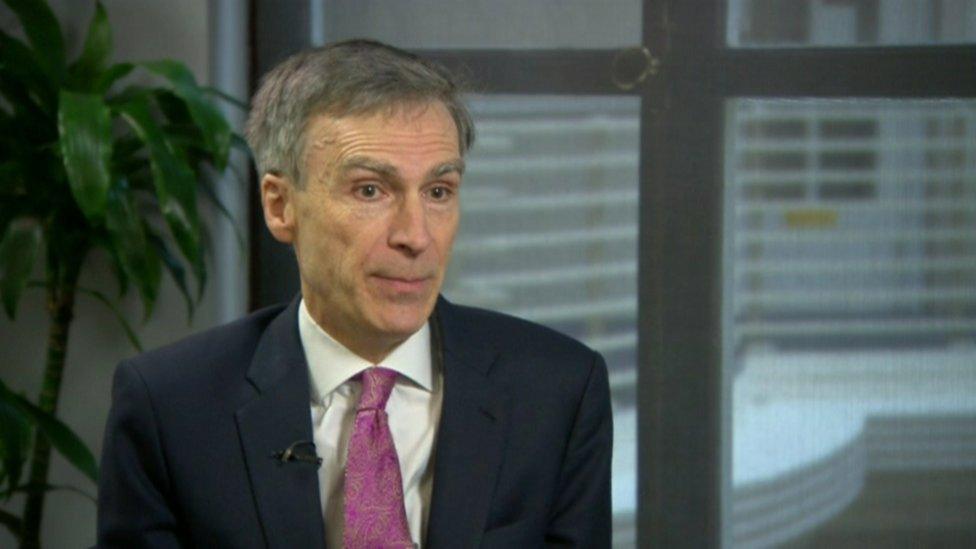
Conservative MP Dr Andrew Murrison said the Irish dimension of the commemoration was "probably one of the most productive" aspects
The prime minister's special representative for the World War One centenary Dr Andrew Murrison MP said it had enhanced understanding and respect for important events.
"It has been that Irish dimension that has been the most heartening and, for me, probably one of the most productive things that we have achieved," he said.
However, the DCMS committee were also warned that a proposed Festival of Britain and Northern Ireland in 2022 could be divisive.
"That 2022 is the centenary of the Irish border, of partition, civil war and the founding of Northern Ireland presents specific challenges as to how such a festival could not belong to one community in Northern Ireland, even before the contemporary resonance of the Irish border is considered," a submission from the British Future think-tank said.
- Published13 October 2017
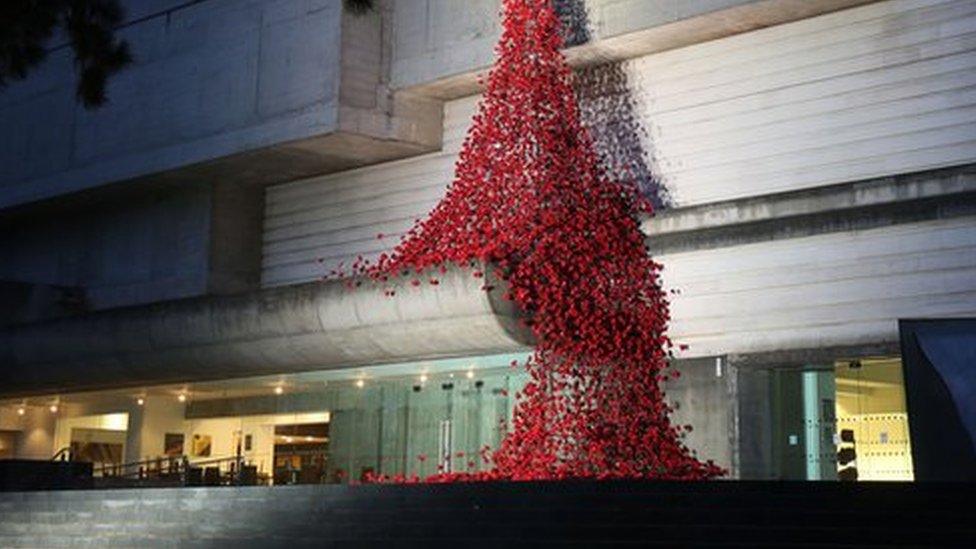
- Published1 July 2016
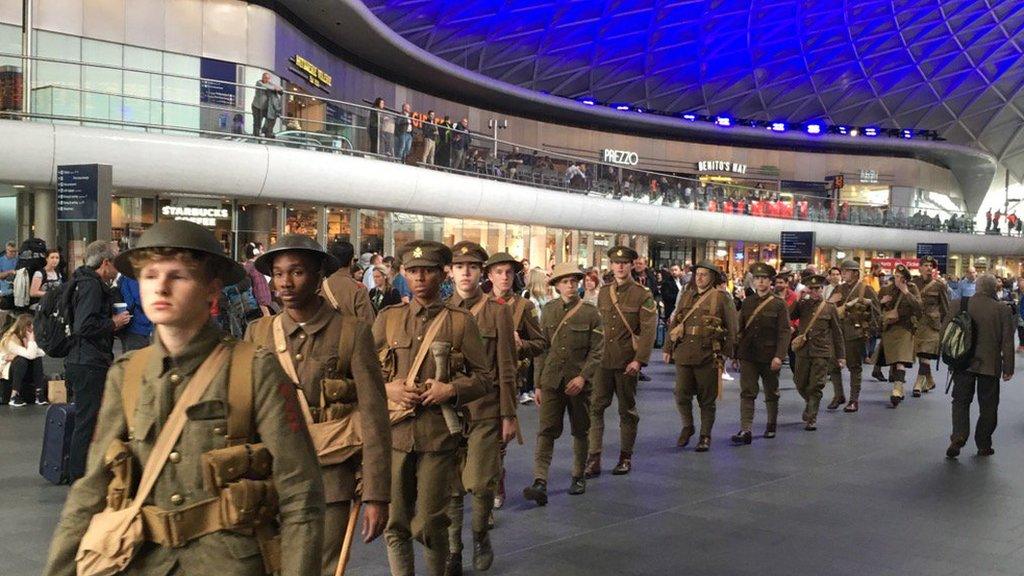
- Published4 August 2014
